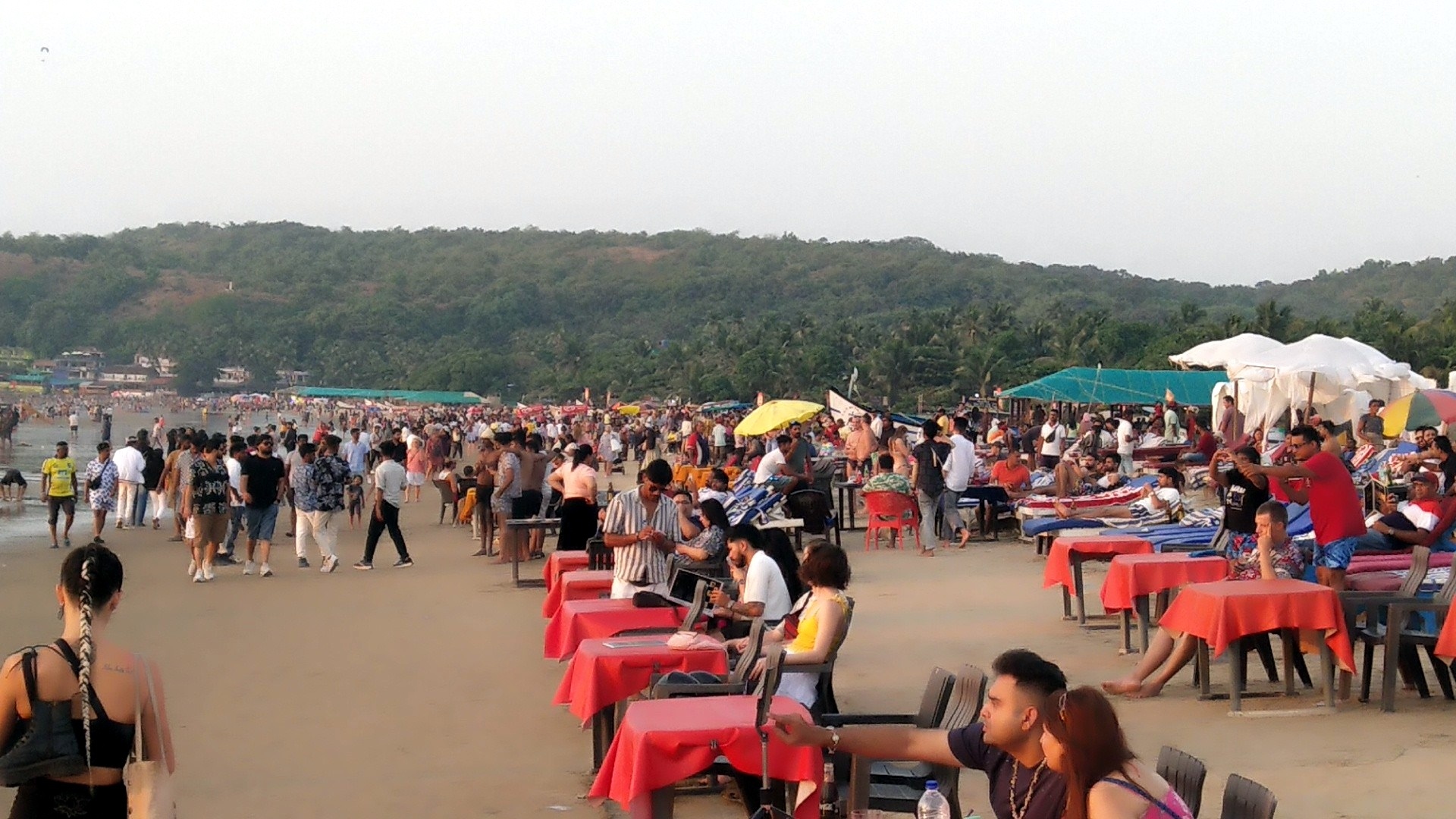
The rows of beach beds and chairs at Arambol beach.
Photo Credits: The Goan
MAPUSA
The picturesque beaches of Goa have been thrust into controversy following a tragic incident last week when a local resident lost his life after an altercation with the shack staff over the placement of beach beds and chairs beyond the designated areas.
The incident has reignited the debate over the regulation and enforcement of beach bed placements, with locals, tourists and shack operators voicing their concerns over safety, space and government oversight.
The altercation, which took place on Arambol beach, reportedly began when the local objected to a shack operator extending their seating area beyond the permitted zone. Witnesses claim that the argument escalated, leading to physical violence that ultimately resulted in the resident’s death.
“The beaches belong to everyone. When shack operators take over the entire stretch with their beds and chairs, it becomes impossible for locals and tourists to enjoy the beach freely,” said Ramnath Naik, a long-time resident of Arambol. “This issue has been ignored for too long, and now it has cost someone his life,” he added.
Many tourists visiting Goa for its pristine beaches have also voiced frustration over the growing number of beach beds encroaching on the shoreline. “I came here expecting a quiet and open beach, but all I see are rows of sunbeds leaving barely any space to walk. It feels like a commercial space rather than a natural beach,” said Sergey, a tourist from Russia.
Some visitors, however, enjoy the convenience provided by the shack operators. “Having beach beds available is great for comfort. I don’t mind paying for the service, but there should be a balance so that everyone can enjoy the beach,” said Rajesh Verma, a tourist from Delhi.
Shack operators defend their livelihood
Shack owners, on the other hand, argue that beach beds are an essential part of their business and that the industry provides employment to thousands of people. “The government gives us licenses and demarcates areas, but those zones are too small for us to sustain our business. Tourists expect beach beds and service; if we don’t provide it, they go elsewhere. We are just trying to survive,” said a shack owner in Arambol, requesting anonymity.
Another shack operator pointed out that enforcement of regulations has been inconsistent. “Some shacks get away with encroaching further onto the beach, while others face strict action. The authorities need to implement fair and clear rules,” he said.
Govt response
The Goa Coastal Zone Management Authority (GCZMA) has laid down specific regulations regarding beach shack operations, including the demarcation of areas where seating and beds can be placed. However, enforcement has been inconsistent, leading to violations that have caused tension among different stakeholders.
A senior official from the Goa Tourism Department, speaking on the condition of anonymity, acknowledged the issue and said that steps are being taken to address it. “We are aware of the increasing encroachment by shack operators and the concerns raised by locals and tourists. Strict action will be taken against those violating the regulations,” the official stated.
Call for stricter enforcement
Local activists have called for stricter enforcement of regulations to prevent further disputes and tragedies. “This isn’t just about business; it’s about the sustainability of our beaches. Unchecked expansion of commercial activities is harming the natural beauty of Goa’s coastline. The authorities need to step up and enforce the rules before we lose what makes Goa special,” said Michael D’Souza, an activist and former bio-diversity committee chairman of Anjuna.
The recent tragedy in Arambol has underscored the urgent need for better regulation and enforcement of beach bed placements by shack operators. While the tourism industry plays a vital role in Goa’s economy, it must not come at the cost of public access and safety.
With heightened scrutiny now on the issue, stakeholders hope that authorities will take decisive action to prevent further conflicts and ensure that Goa’s beaches remain a welcoming space for all.